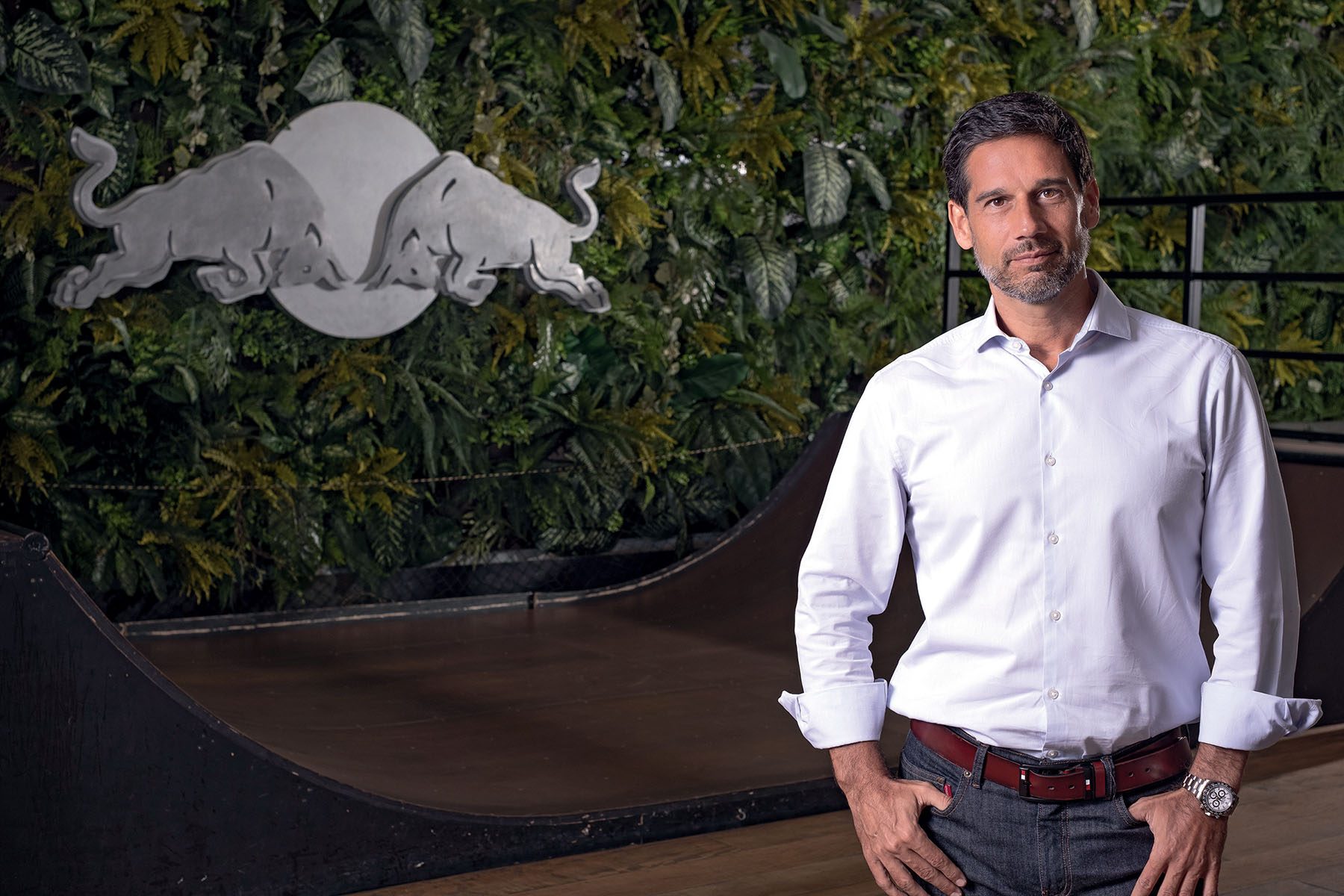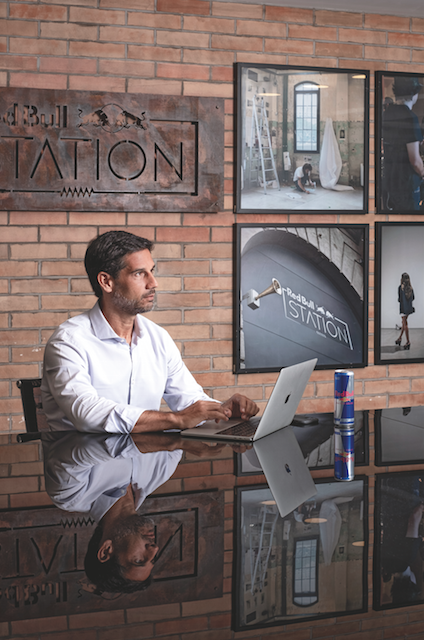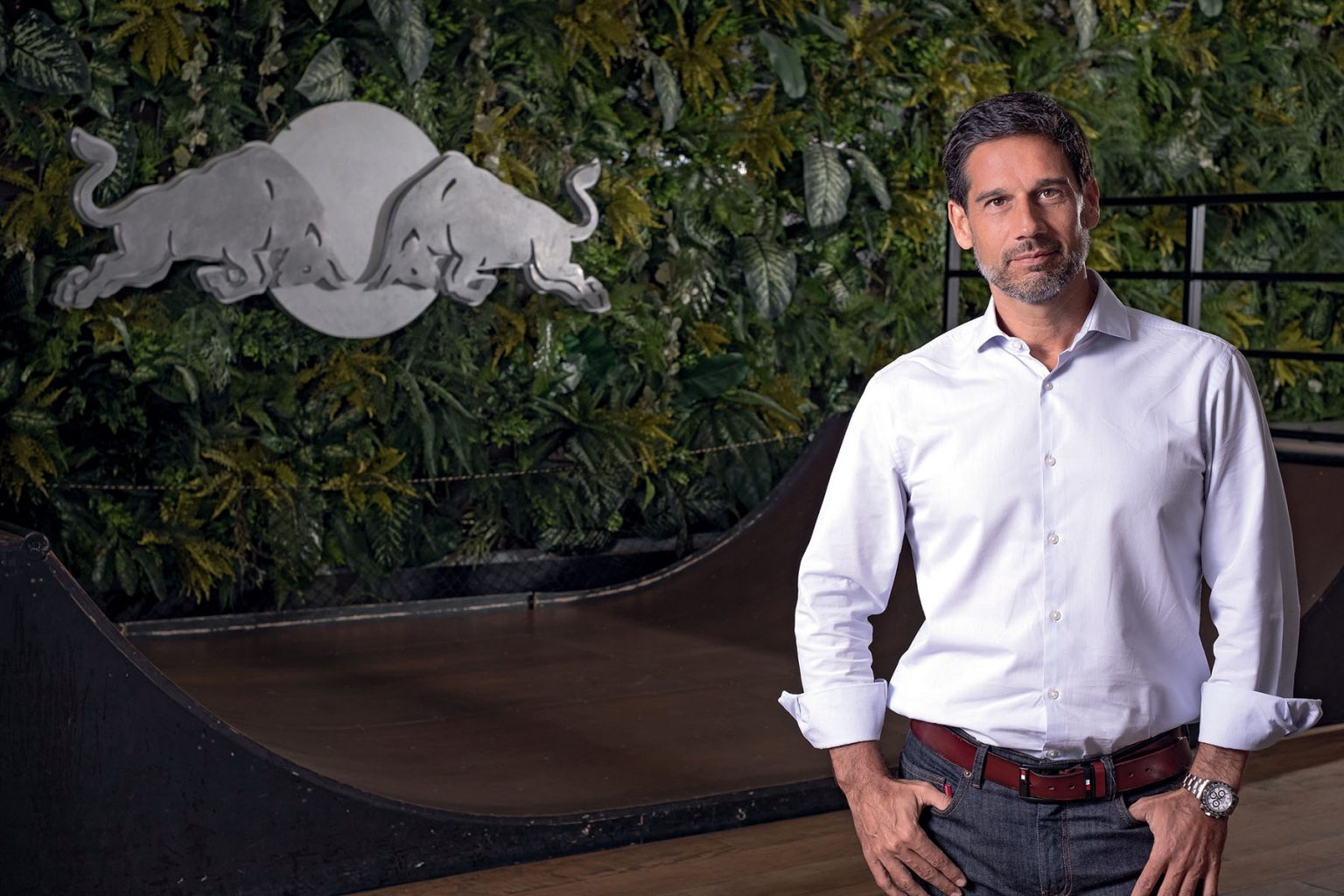Red Bull could not have chosen a more suitable executive if it had designed one in a lab. Marcos Angelini has spent the past 25 years working in marketing, innovation, advertising and general management in nine countries, including 21 years at Unilever, where he rose to Vice President of Home Care for Latin America.

He spent a year as Facebook’s General Manager for Brazil, growing the company’s revenue by around 50% in 2016. But perhaps more importantly, the Argentinian engineer is an avid skier, cyclist, motorcyclist and Formula One fan – all hobbies that make him a perfect fit for the energy drink company that wants to give people wings.
“At the time I decided to join, it was my dream job coming true. As a consumer, I had been a brand lover and heavy user of Red Bull. I had connected with the brand for many years through extreme sports. Then, as a longtime marketer with 25 years in the field, I always admired the Red Bull brand as one of the most impressive brands of all time,” he recalls.
Alongside Apple, Nike and Disney, Marcos could see that Red Bull centered its marketing less around its product than around a lifestyle. “There is a whole idea much bigger than the product itself, but still with the product at the core of this lifestyle proposition,” he observes.
His love of the brand and his qualifications have served him well since he joined Red Bull as President for Latin America in 2017. It was an opportune time for him to join the energy drink company.
“We were struggling to unlock growth in Latin America. Fortunately, throughout most of my time at Unilever, I was tasked with doing business turnarounds in many countries around the world,” Marcos reveals.
We want to give wings to our consumers, to our people internally, to our customers and to our partners and communities.
“After four years of decline leading up to me joining Red Bull, we have spent the years since with average double-digit growth per year.”
Brand identity
Central to the ushering in this new period of growth for Red Bull in Latin America has been Marcos’s reorganization of the company’s leadership team and creation of a new regional strategy. This revolves around a core purpose: “give wings to people and ideas”.
“We want to give wings to our consumers, to our people internally, to our customers and to our partners and communities,” Marcos explains. He hopes to achieve this by ensuring that the Red Bull brand always “surprises, entertains and delights – always fresh, modern and contemporary”.
To sustain the brand, Red Bull must deliver a product that lives up to its functional promise. “Our products promise to revitalize the body and mind with the most superior quality you can imagine, the best ingredients and the most advanced and rigorous manufacturing processes along the whole supply chain,” Marcos explains.

He is supported in these objectives by a team that is passionate about the brand and committed to the world that Red Bull envisions. “We have a very young, driven team that likes to work hard and play hard, that focuses on perfect execution, that is passionate, spirited, genuine, dynamic, diverse, full of ideas and loves trial and error,” Marcos points out.
“We put a lot of emphasis on continued development, transparency, trust and respect, and the results have been amazing.”
Crisis management
The greatest threat to the ultra-productive environment Marcos set up over the past four years has been the COVID-19 pandemic. Not only has it made the business environment volatile and unpredictable, but it has also disrupted the communication and teamwork that Red Bull’s recent growth in Latin America has relied upon.
“After health and safety, my greatest concern has been how to keep people motivated and performing, and for some of them, how to make sure they have a meaningful job while working from home,” he says.
“For some of our team members, we have had to create a new work plan that not only keeps them busy, but also gives them a strong sense that they are adding value.” The answer, of course, was not a “one-size-fits-all solution”.
Marcos has noticed two distinctive groups forming in the wake of the remote working measures his company has taken. There are those who’ve begun to overwork themselves and those who find themselves with too little to do.
“We needed a solution for both groups – to have all the people in the middle zone, neither stressed nor complacent. Techniques of dynamic resource allocation have become fundamental. It’s been challenging, but we’ve asked people who are less busy to take on some tasks of those who are working 24/7. We have implemented this very successfully,” he says.
The results speak for themselves. “We came out of 2020 with business growth in Latin America. This is something that we consider remarkable and that we are all very proud of,” he smiles. Overcoming challenges like these is what Marcos loves most about his job.
“I always wish that anyone who ever worked with me remembers me as someone who contributed at least a little to their own personal growth because we worked together.”
Proudly supported by:




